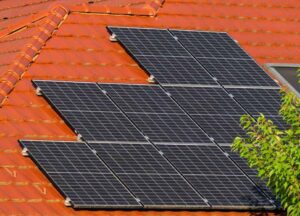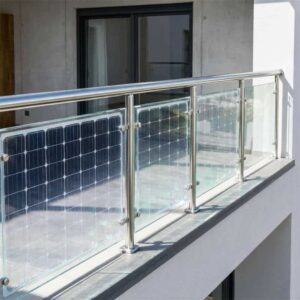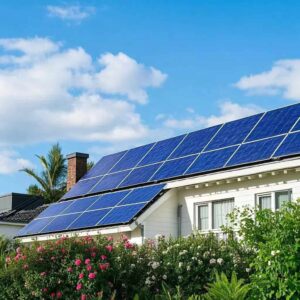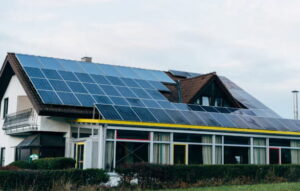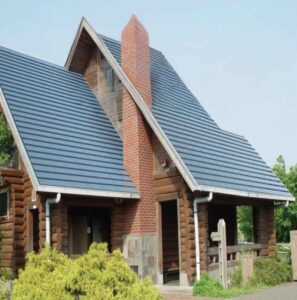The best solar inverter for your home depends on what you need. You should think about backup power, how steady your local grid is, and your budget. Hybrid inverters give you backup and let you store energy. You can use stored energy during outages or at night. Grid-tie inverters are easier to set up and usually cost less.
Many homeowners choose hybrid inverters for these reasons:
| Reason for Choosing Hybrid Inverters | Description |
|---|---|
| Energy Independence | Hybrid inverters let you save extra energy. This gives you backup when the power goes out or when there is not much sunlight. |
| Backup Power Capabilities | Hybrid inverters can use battery power during blackouts. This keeps your power on when the grid is down. |
| Maximizing Self-Consumption | You can use more of your solar energy by saving it for later. This means you do not have to send it back to the grid. |
- Hybrid inverters often have software that helps manage energy. The software tracks how you use power and helps you use your battery better.
Use the next sections to help you pick the right inverter type for your needs.
Key Takeaways
- Hybrid inverters give backup power when the lights go out. They store energy in batteries. This keeps your important devices working.
- Grid-tie inverters are easy to set up. They cost less money to install. They are good for homes with steady grid power.
- Think about how much energy you need. Hybrid inverters help if you want backup power. Grid-tie inverters are best for using energy during the day.
- Look for local deals on solar systems. These deals can lower your costs a lot. They help you get more value for your money.
- Think ahead for your needs. Hybrid inverters let you add batteries later. You can also make your system bigger if you need to.
Types of Solar Inverter
When you look for solar inverters, you will see many kinds. Each kind has its own good points. The best one depends on what you need and your solar system.
Hybrid Inverter
A hybrid inverter lets you control your energy better. You can use it with the grid and with batteries. This means you can save extra solar energy in batteries. You can use this saved power at night or when the power goes out. Hybrid inverters are good if you want backup power or if your grid is not steady.
Some hybrid inverters, like some chinese solar power inverters, have smart features. You can check how much energy you use and store. Many hybrid inverters put many parts together in one box. This makes it easier to take care of them. You might see brands like solar edge inverter or expert power inverter turn off beeping for solar charging in this group.
Hybrid inverters help you:
- Save extra solar energy for later.
- Keep your lights on when the power is out.
- Use less power from the grid.
Grid-Tie Inverter
A grid-tie inverter links your solar panels to the grid. You use the power you make right away. Any extra power goes back to the grid. This kind of solar inverter is simple and saves money. You do not need batteries, so it is easier and costs less.
Grid-tie inverters have things like Maximum Power Point Tracking (MPPT). This helps your system work its best. Many homes use a solar panel inverter or a solar micro inverter for this. Some well-known brands are solar edge inverter, which works very well.
Key parts of a grid-tie inverter are:
- DC input from your solar panels
- Inversion circuit to change DC to AC
- MPPT controller for best results
- AC output to your home or the grid
- Protection devices for safety
Main Differences
You should know the main ways hybrid and grid-tie inverters are different before you pick one. Here is a quick look:
| Feature | Hybrid Inverter | Grid-Tie Inverter |
|---|---|---|
| Battery Support | Yes | No |
| Backup Power | Yes, during outages | No, shuts down if grid fails |
| Installation | More complex (batteries, more parts) | Simple (no batteries needed) |
| Cost | Higher upfront | Lower upfront |
| Best For | Unstable grids, backup needs | Stable grids, cost savings |
Hybrid inverters let you save energy and use it when you need it. Grid-tie inverters are simple and cost less. Both types of solar inverter help you save money and use clean energy. Pick the one that fits your needs best.
Solar Inverter Pros and Cons
Hybrid Inverter Pros
Hybrid inverters give homeowners more control over their energy. You can have backup power and use less grid energy with these systems.
- Your power stays on during outages. Hybrid inverters switch to battery power right away, so your important devices keep working.
- You can save extra solar energy for nighttime or when the grid is down.
- You use the grid and fossil fuels less, which helps the environment.
- Smart features help you watch and improve your energy use. Many hybrid inverters, like solar edge inverter and expert power inverter turn off beeping for solar charging, let you see your energy use as it happens.
- Smart controls help your battery last longer by managing charging and discharging.
Hybrid inverters, including some chinese solar power inverters, switch from grid to battery so smoothly that you might not notice when the power goes out.
Hybrid Inverter Cons
Hybrid inverters also have some downsides you should know about.
- You pay more at first because these systems need batteries and extra parts.
- Installing them is harder and you may need a professional.
- You have to do more maintenance, especially for the batteries, which need replacing every few years.
- Some models only work with certain batteries, so you must pick carefully.
- Switching between power sources can lower efficiency.
- Older hybrid inverters may not have the newest grid support features.
- You might have trouble if you try to use a hybrid inverter with an old solar panel inverter system.
Grid-Tie Inverter Pros
Grid-tie inverters are good for homes with steady grid power. You can save money and set them up easily.
- You pay less at first because you do not need batteries.
- Installing them is quicker and simpler.
- Net metering lets you send extra power to the grid. You can get credits and lower your bills.
- You use all the solar energy you make. The grid gives you power when your solar system does not.
- There are many rebates and incentives for grid-tied systems, so you pay less.
- Maintenance is easy because there are fewer parts. Brands like solar micro inverter and solar edge inverter are known for being reliable.
Grid-Tie Inverter Cons
Grid-tie inverters have some limits, especially if you want backup power.
| Limitation | Explanation |
|---|---|
| Dependency on the Grid | Grid-tied inverters stop working during outages. Your solar system turns off completely. |
| No Backup Power | These systems do not store energy, so you have no power if the grid fails. |
| No Power During Outages | Safety rules make the system stop making power during utility outages. |
When the power goes out, federal safety rules make your solar inverter system shut off. This keeps utility workers safe and stops dangers. The automatic shut-off keeps everyone safe while repairs are made.
- You cannot use solar energy during outages, even if it is sunny.
- Grid-tie inverters do not give you energy independence. You need the grid for power at night or on cloudy days.
Comparison Table
Here is a simple comparison of hybrid and grid-tie solar inverter systems:
| Feature/Metric | Hybrid Inverter | Grid-Tie Inverter |
|---|---|---|
| Backup Power | Yes, uses battery storage during outages | No, shuts down during outages |
| Energy Independence | High, stores solar energy for later use | Low, relies on grid for power |
| Upfront Cost | Higher ($1,000-$9,000 depending on size) | Lower |
| Installation Complexity | More complex, needs professional installation | Simple, fewer components |
| Maintenance | More maintenance (battery replacement needed) | Less maintenance, no batteries |
| Net Metering | Possible, but less common | Common, easy to earn credits |
| Brands/Types | solar edge inverter, expert power inverter turn off beeping for solar charging, chinese solar power inverters | solar panel inverter, solar micro inverter, solar edge inverter |
| Best For | Unstable grids, backup needs, energy independence | Stable grids, cost savings, simplicity |
You should think about what you need, your budget, and how steady your grid is before picking a solar inverter. Hybrid inverters are best if you want backup power and more control. Grid-tie inverters are great if you want something simple and cheap.
Key Factors to Consider
Picking the right inverter depends on your needs. You should think about how much energy you use, your budget, how steady your grid is, if you want to upgrade later, and what incentives you can get. Each thing helps you choose if a hybrid or grid-tie system is best for your house.
Energy Needs
First, look at how much power your home uses. What you do every day and what devices you have matter.
- If you use lots of power at night or want backup, a hybrid inverter gives you more control.
- If you use most power during the day and your grid is steady, a grid-tie inverter can help you save money.
- Hybrid inverters are good if you need steady power for important devices or have outages often.
- Grid-tie inverters are good if you want to use solar power during the day and send extra power to the grid.
Pick an inverter size that fits your home. Use this table to help you:
| Inverter Size | Ideal For |
|---|---|
| 3kW–5kW | Small homes, low usage, 1–2 residents |
| 6kW–8kW | Medium homes, families of 3–5 |
| 10kW–15kW | Large homes, big families, high usage |
Tip: If you want to add an electric car or more devices, pick a bigger inverter now.
Budget
Your budget is important when you choose an inverter. Hybrid inverters cost more at first but give you backup and more choices. Grid-tie inverters cost less and are easier to put in.
| Inverter Type | Price Range |
|---|---|
| Hybrid Inverters | $1,000 – $5,000 |
| Grid-Tie Inverters | $800 – $2,500 |
- Hybrid inverters can save you money later if you want backup or plan to add batteries.
- Grid-tie inverters help you save money now and are good if you do not need backup.
Grid Stability
Think about how steady your local grid is. This helps you pick the right inverter.
| Inverter Type | Grid Dependency | Best for Unreliable Grids |
|---|---|---|
| Hybrid Inverters | Can work with or without the grid | Yes |
| Grid-Tie Inverters | Need a stable grid to work | No |
- Hybrid inverters keep your lights on during outages by using stored power.
- Grid-tie inverters stop working when the grid goes down, so you lose power.
Problems with the grid can change your choice. Things like voltage drops or bad power can make grid-tie inverters turn off. Hybrid inverters handle these problems better because they can use battery power.
Expansion Plans
Think about what you might need later. You may want to add more solar panels or batteries.
- Look at your system now and see if it can handle more panels or batteries.
- Plan for new things, like electric cars or more devices.
- Pick an inverter that lets you upgrade easily. Hybrid inverters make it easy to add batteries or panels.
- Make sure all parts work together and follow safety rules.
- Work with a solar expert to keep your system safe and under warranty.
Note: Hybrid inverters give you more ways to upgrade later. Grid-tie inverters may make it harder to add batteries.
Incentives
Check for local, state, or federal incentives. These can help you pay less and get your money back faster.
- Many places give rebates or tax credits for solar systems.
- Net metering lets you get credits for extra power you send to the grid, which helps with grid-tie systems.
- Incentives can make both hybrid and grid-tie systems cheaper.
Check your local rules and programs before you buy. Incentives can change often.
To pick the right solar inverter, match your needs to the features. Think about your energy use, budget, grid reliability, plans for upgrades, and incentives. This helps you choose the best system for your house.
Which to Choose
For Backup Power
If you want your lights to stay on during a power outage, you should choose a hybrid inverter. This type of system stores extra energy in batteries. When the grid goes down, your home can switch to battery power. You will not lose access to important devices like your refrigerator or medical equipment. Hybrid inverters work well in places where the grid is not always reliable. You can feel safe knowing you have backup power ready.
Tip: Always check the battery size. Make sure it matches your backup needs.
For Cost Savings
If you want to save money and your local grid is stable, a grid-tie inverter is a smart choice. This system sends extra solar energy back to the grid. You can earn credits on your electric bill through net metering. Grid-tie inverters cost less to install because you do not need batteries. You will see lower upfront costs and simple maintenance. Many homeowners pick this option to get the most value from their solar panels.
For Simplicity
If you want a system that is easy to use and maintain, a grid-tie inverter is best. You do not have to worry about batteries or extra equipment. The setup is straightforward. You can enjoy solar energy without learning about complex systems. Grid-tie inverters also take up less space in your home.
For Flexibility
If you want to expand your system later or add batteries, a hybrid inverter gives you more options. You can start with solar panels and add storage when you are ready. Hybrid inverters let you adjust your system as your needs change. This flexibility helps if you plan to buy an electric car or add more appliances in the future.
Note: Think about your long-term plans before you choose a solar inverter. The right choice today can save you time and money later.
Picking between a hybrid and grid-tie solar inverter depends on what you need. Look at this table to help you decide:
| Feature | Hybrid Inverter (e.g., solar edge inverter) | Grid-Tie Inverter (e.g., solar panel inverter) |
|---|---|---|
| Backup Power | Yes (uses batteries) | No |
| Upfront Cost | Higher | Lower |
| Energy Independence | Greater | Less |
| Outage Functionality | Powers some or all loads | Shuts down |
| Complexity | More complex | Simpler |
Checklist to help you choose:
- Do you want backup power for your home?
- Is your spending money small?
- Does your area lose power often?
- Will you want to make your system bigger later?
Ask a solar expert to help you pick the best solar inverter inverter or chinese solar power inverters for your needs.
FAQ
What is the main difference between a hybrid inverter and a grid-tie inverter?
A hybrid inverter saves solar energy in batteries for later. A grid-tie inverter sends extra power to the grid instead. Hybrid inverters give you backup power if the grid goes out. Grid-tie inverters work best when your grid is always steady.
Can I add batteries to my grid-tie solar inverter system later?
Most grid-tie inverters do not let you add batteries. If you want storage, pick a hybrid inverter or a solar and power inverter that can upgrade. Some new models, like some chinese solar power inverters, let you add batteries.
How do I stop my expert power inverter from beeping during solar charging?
Look at your expert power inverter manual for help. Many models let you turn off beeping in the settings. If you cannot find the setting, ask customer support for help.
Which inverter is best for small homes?
A solar micro inverter or a small solar panel inverter is good for small homes. These inverters are easy to put in and take care of. You can also try a solar edge inverter for better efficiency.
Are chinese solar power inverters reliable?
Many chinese solar power inverters work well and cost less. Always read reviews and check for certifications before buying. Make sure there are safety features and a good warranty.

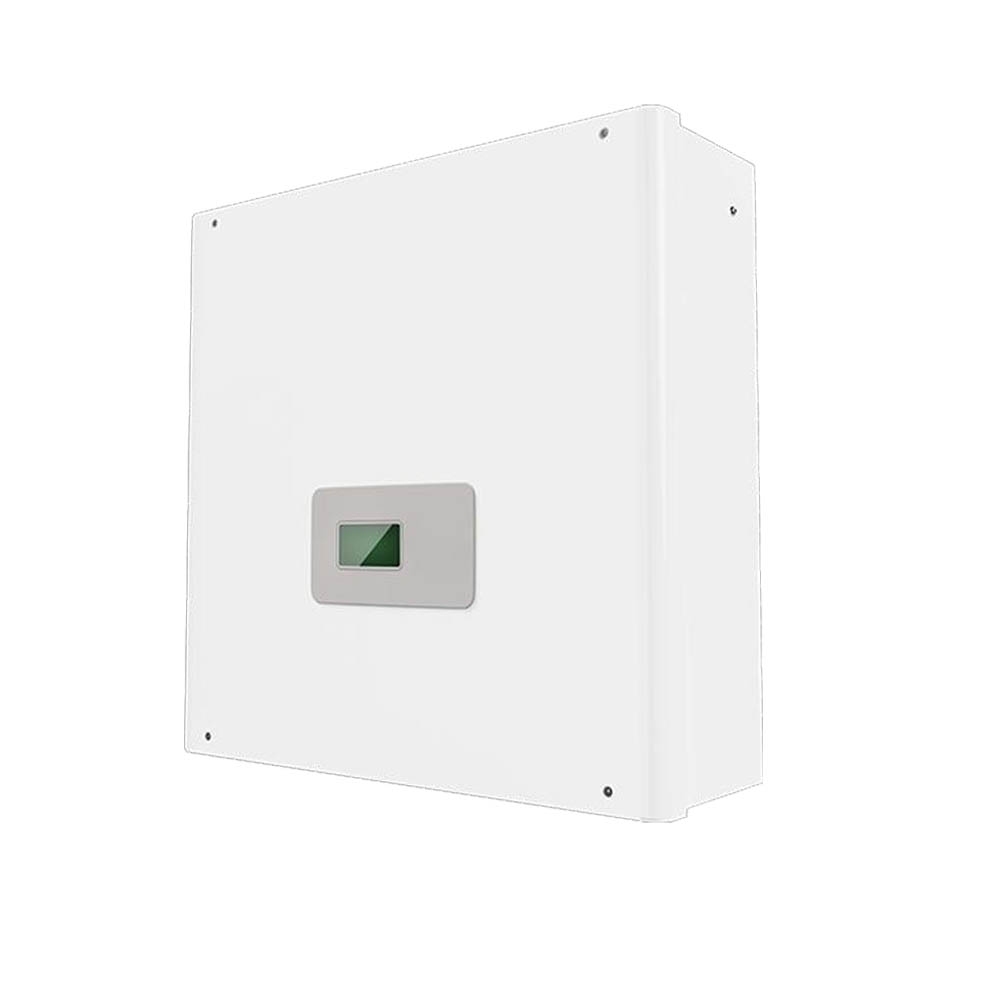
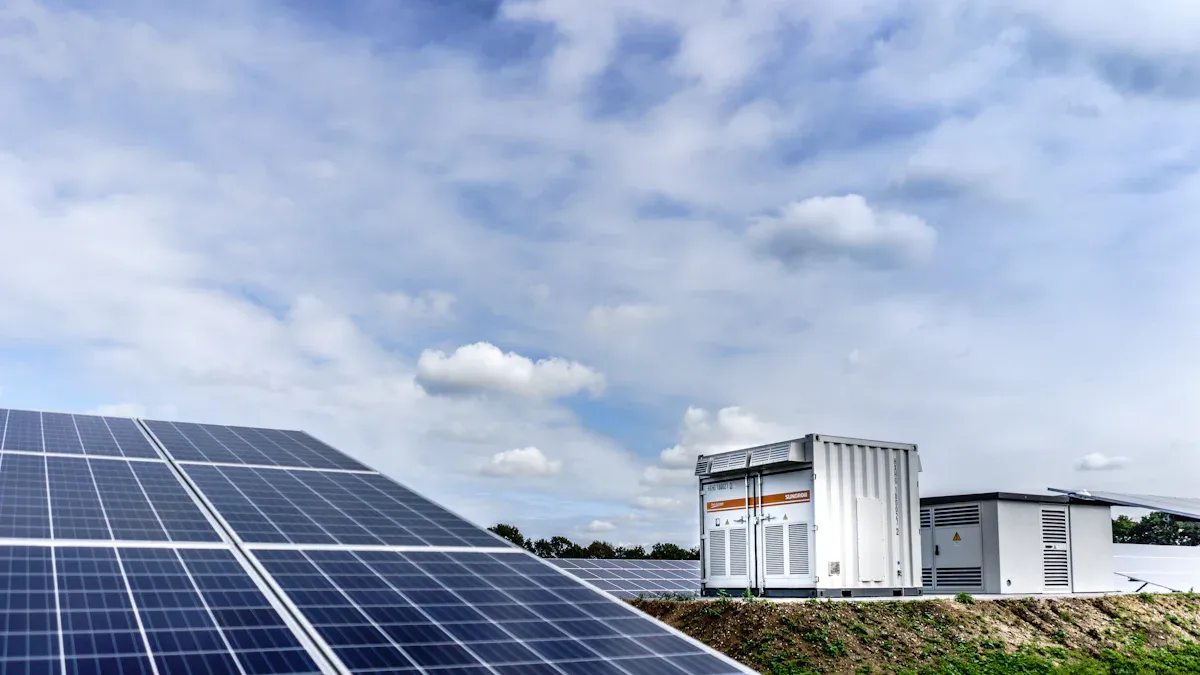
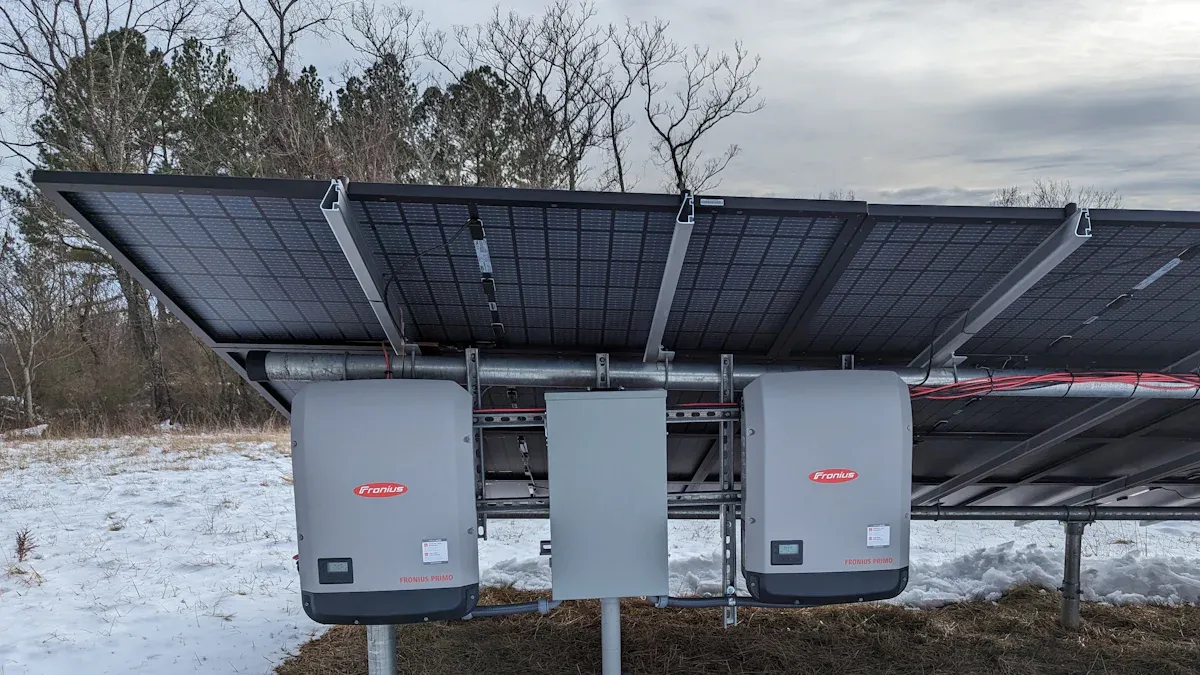
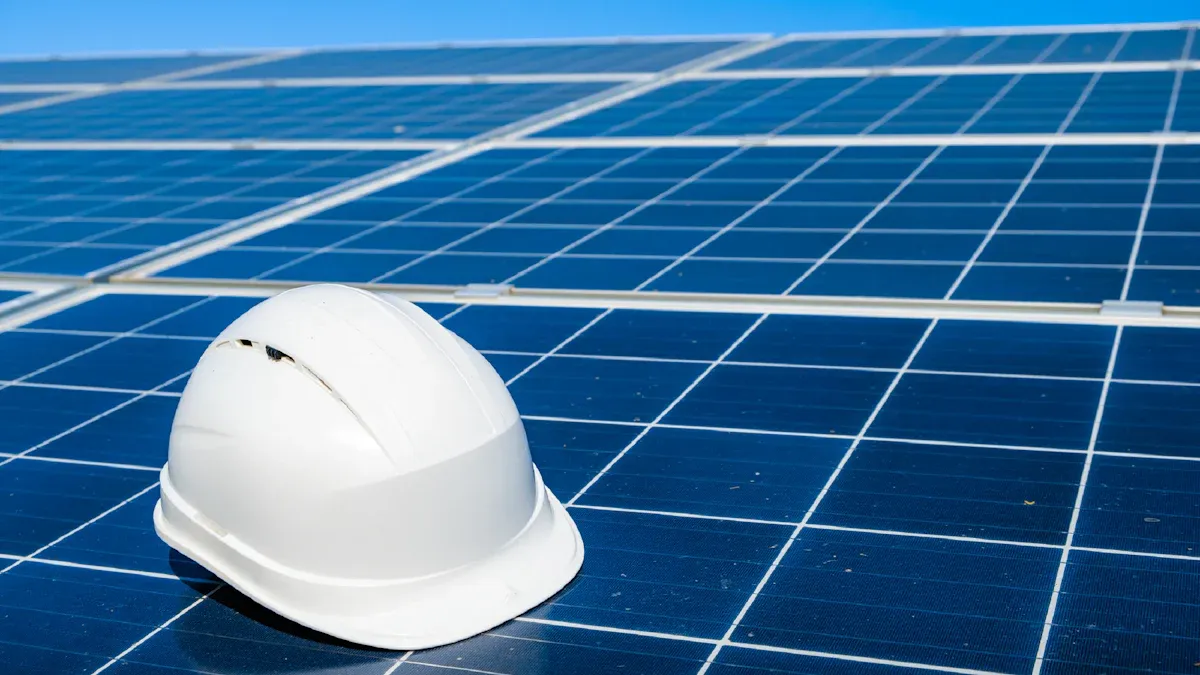




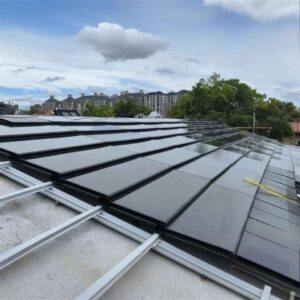
-300x300.jpg)
